Indigenous Governance Database
Justice Systems
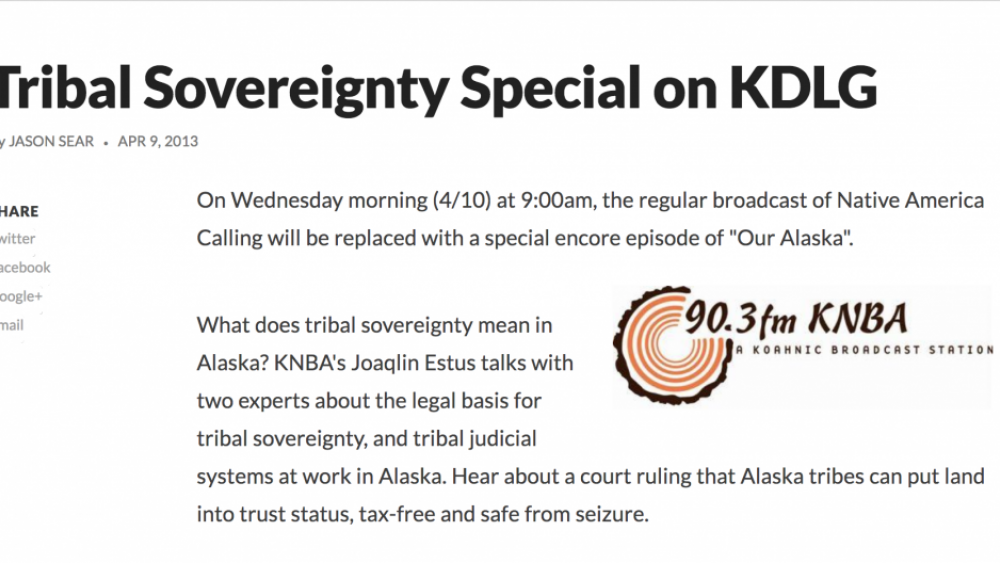
Tribal Sovereignty Special
What does tribal sovereignty mean in Alaska? KNBA's Joaqlin Estus talks with two experts about the legal basis for tribal sovereignty, and tribal judicial systems at work in Alaska. Hear about a court ruling that Alaska tribes can put land into trust status, tax-free and safe from seizure...
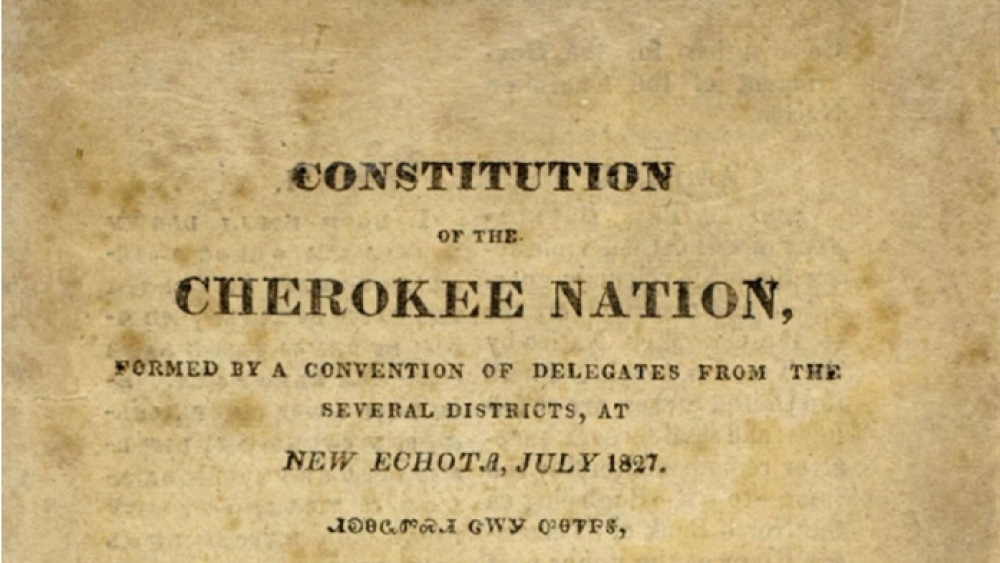
Tribal Constitutions
Modern tribal nations pass laws, exercise criminal jurisdiction, and enjoy extensive powers when it comes to self-governance and matters of sovereignty. And of 566 tribal nations, just under half have adopted written constitutions. In the American tradition, a constitution limits the power yielded…
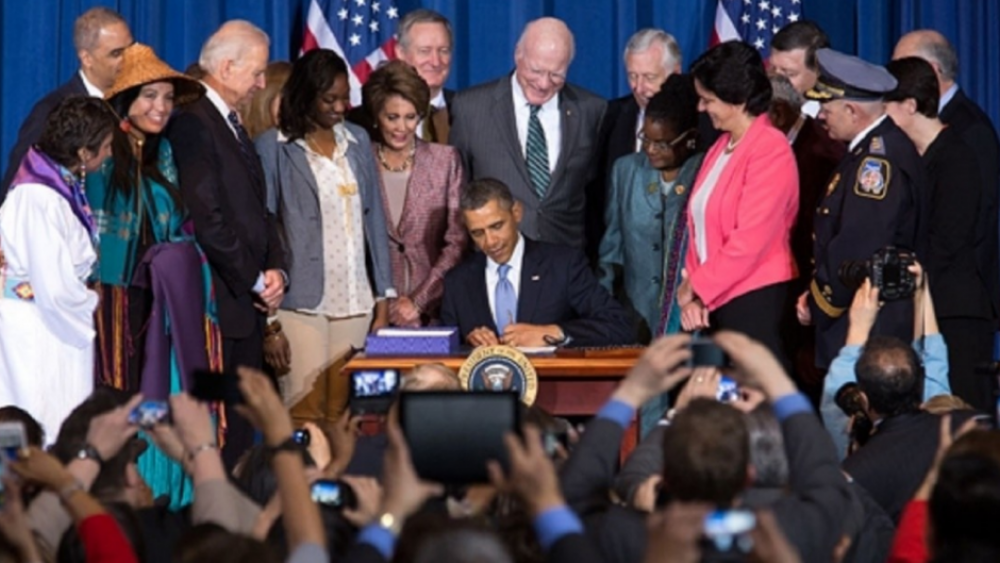
VAWA 2 Years Later
It’s been just over 2 years since Congress reauthorized the Violence Against Women Act. In February of last year, three tribes participated in a pilot project to exercise the special domestic violence criminal jurisdiction (SDVCJ) portion of the law. Under SDVCJ, some tribes can prosecute Natives…

Implementing VAWA's Expanded Jurisdiction in Our Tribal Courts
In coordination with the Tribal Law and Policy Institute, NCAI hosting this webinar on April 5, 2013. In this webinar, panelists discussed the Violence Against Women Act (VAWA) provisions that expands tribal court jurisdiction over all persons for certain crimes committed on the reservation.
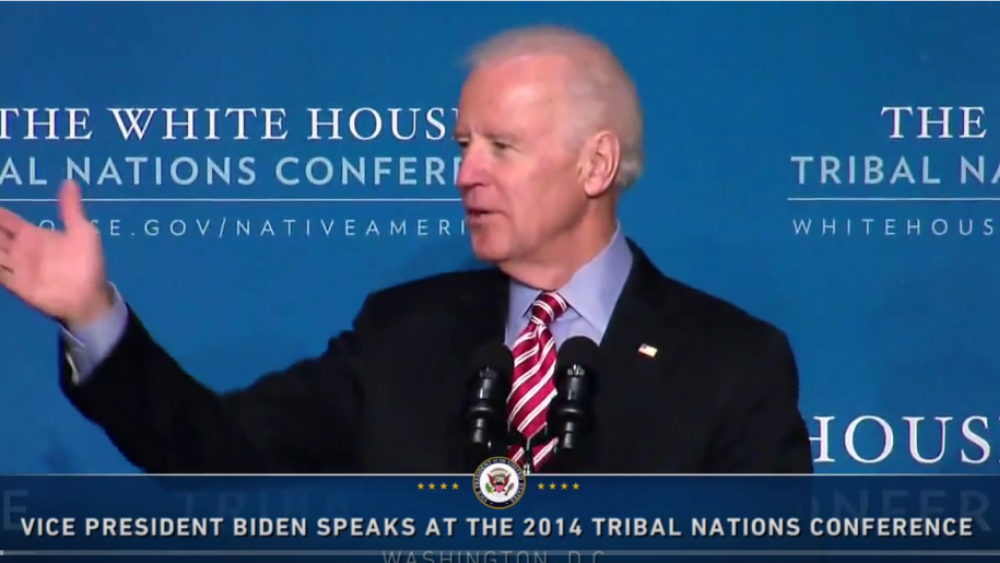
Vice President Biden Speaks at the 2014 White House Tribal Nations Conference
On December 3, 2014, Vice President Joe Biden addressed the 2014 White House Tribal Nations Conference. At the conference, leaders from the 566 federally-recognized Native nations engaged with the President, Cabinet Officials, and the White House Council on Native American Affairs on key issues…
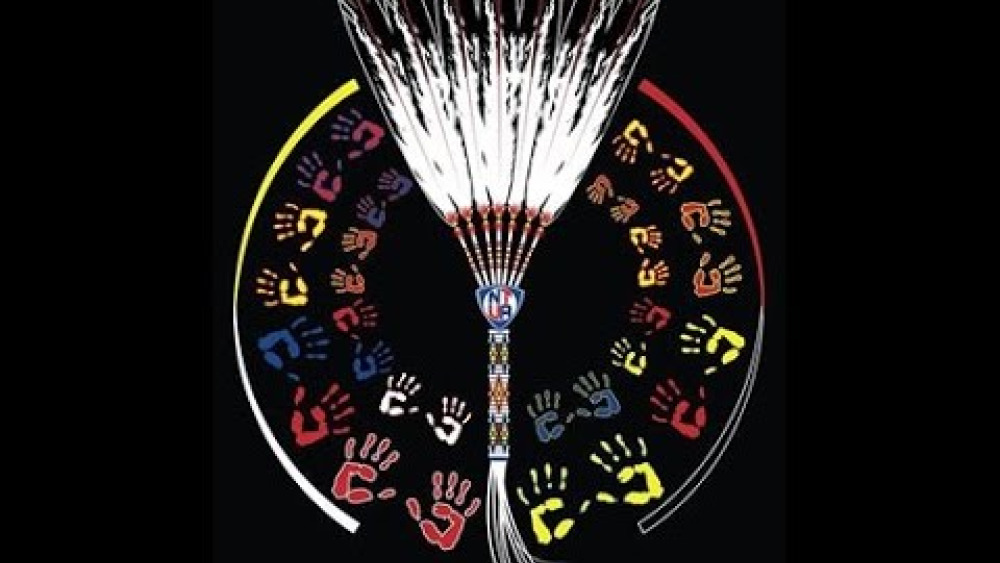
Blackfeet Constitutional Change Class
The summation of all several videos...the complete 6 1/2 hour taping of the discussion of why our current Constitution, Charter, and Plan of Operations have become ineffective for our current times as a people and Piikani Nation for "Blackfeet Government Change" of Joe McKay and Blackfeet Community…
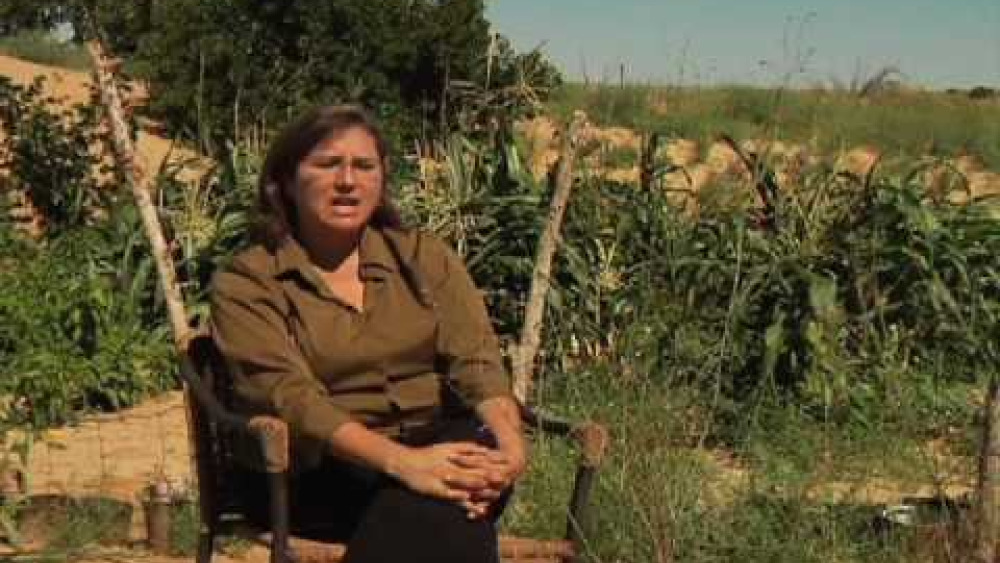
A Way Out of Conflict
"A Way Out of Conflict" is a short documentary film that provides an overview of how traditional dispute resolution approaches and strategies operate in Hopi communities today. It examines how the Hopi villages retain and exercise authority over the adjudication of certain types of disputes…

Arizona Illustrated: The Rebuilding Native Nations Course Series
Course series director Ian Record and course faculty member Robert A. Williams, Jr. appear on Arizona Public Media's "Arizona Illustrated" evening news television program to discuss the Native Nations Institute's groundbreaking "Rebuilding Native Nations: Strategies for Governance and Development"…
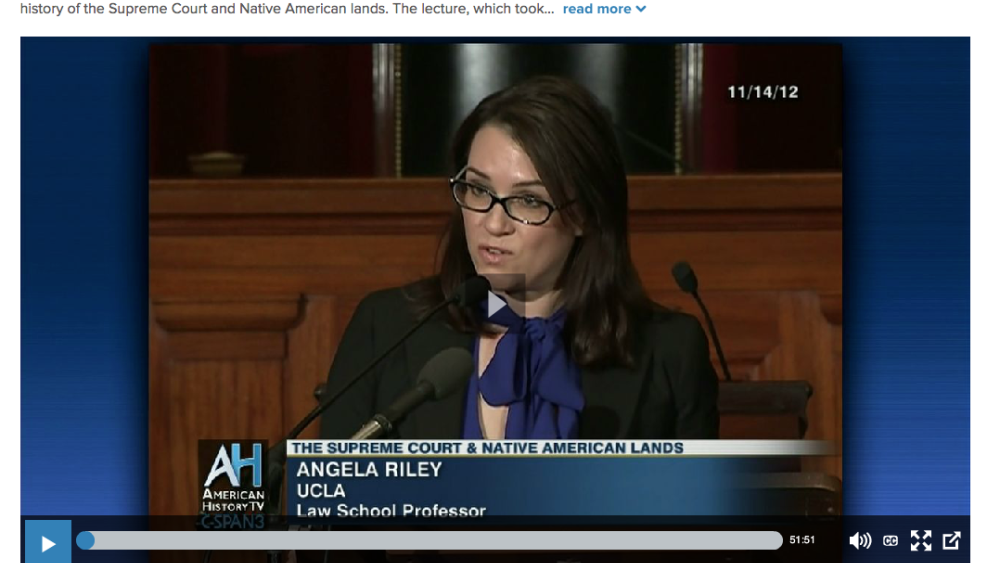
Native American Lands and the Supreme Court
Tribal judge and legal scholar Angela Riley (Citizen Potawatomi) spoke in the U.S. Supreme Court chamber about the history of the Supreme Court and Native American lands. The lecture was one in a series hosted by the Supreme Court Historical Society on the Constitution, the Supreme Court, and…
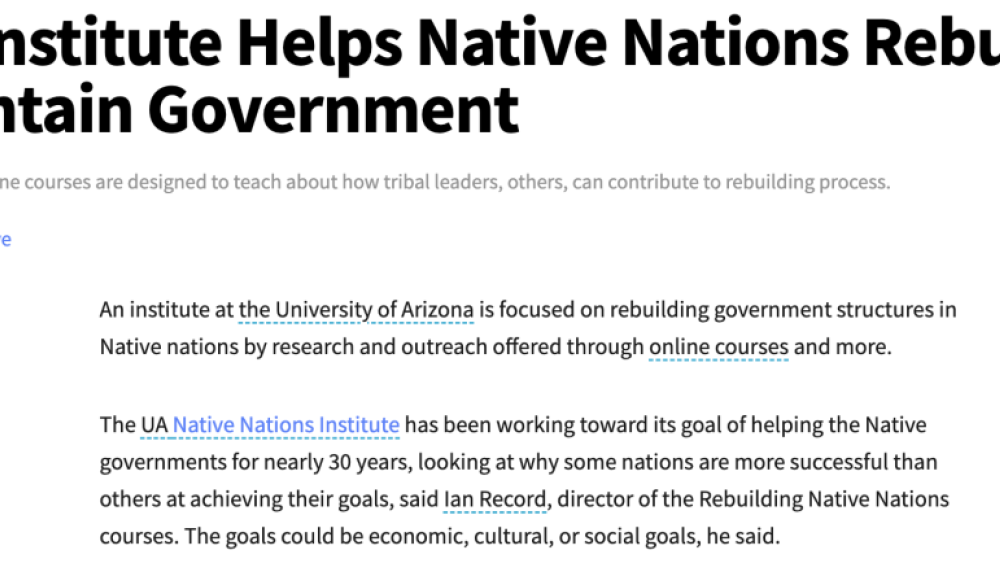
UA Institute Helps Native Nations Rebuild, Maintain Government
An institute at the University of Arizona is focused on rebuilding government structures in Native nations by research and outreach offered through online courses and more. The UA Native Nations Institute has been working toward its goal of helping the Native governments for nearly 30 years,…

Videos: White Earth Nation Constitutional Reform
As part of its ongoing process of educating the White Earth people and others about White Earth's proposed new constitution, White Earth Nation's Constitutional Education Team produced several videos for White Earth citizens to view in order to gain a better understanding of the key governance…
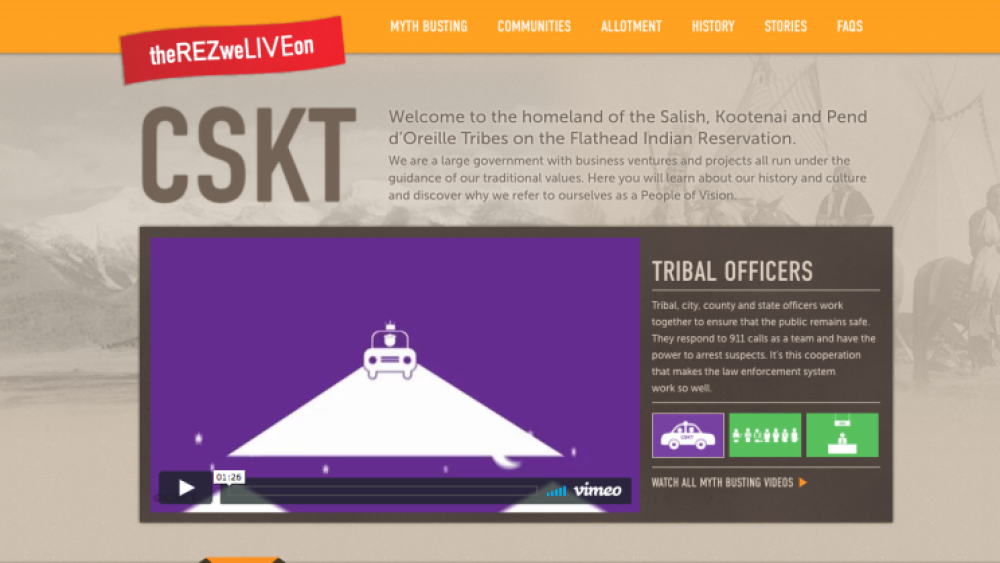
The Rez We Live On
The Confederated Salish and Kootenai Tribes produced this series of online videos in an effort to dispel untruths about life on the Flathead reservation in Montana. Consisting of 10 short, graphically based videos on topics ranging from Sovereignty to Taxes, "The Rez We Live On" site is geared…
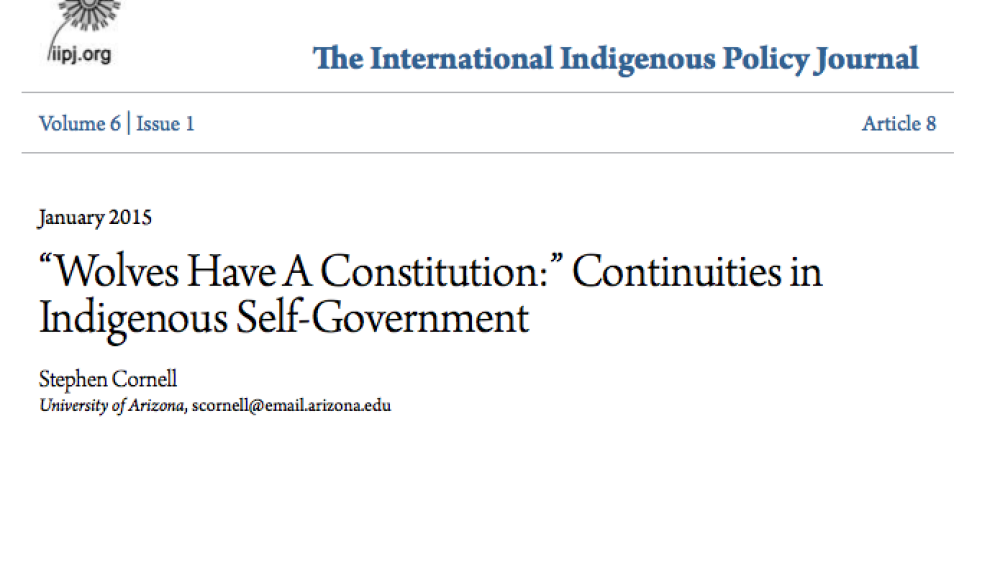
Wolves Have A Constitution: Continuities in Indigenous Self-Government
This article is about constitutionalism as an Indigenous tradition. The political idea of constitutionalism is the idea that the process of governing is itself governed by a set of foundational laws or rules. There is ample evidence that Indigenous nations in North America–and in Australia and New…
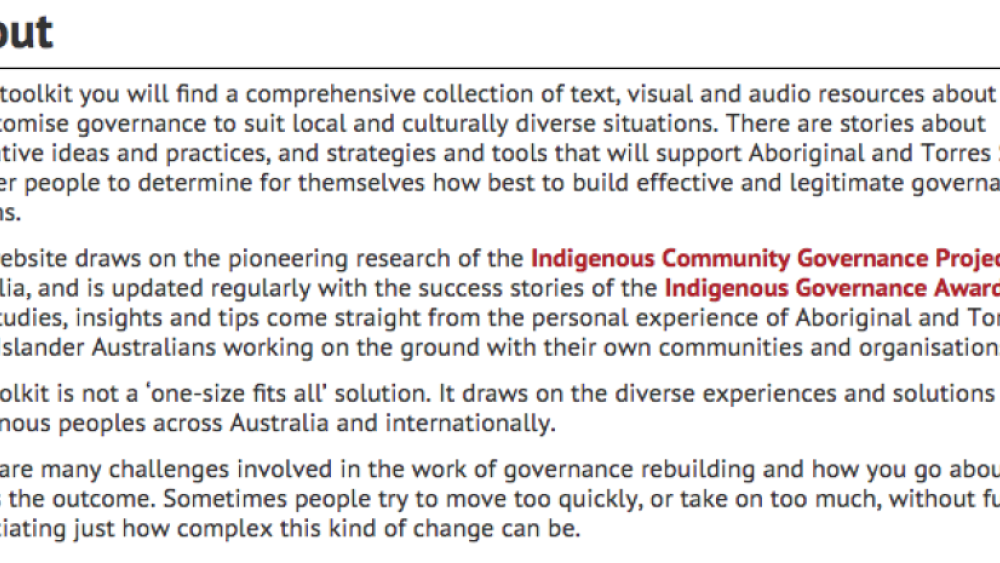
Indigenous Governance Toolkit
The Indigenous Governance Toolkit is an online resource developed for Indigenous nations, communities, individuals and organisations searching for information to build their governance. It covers all the basics — your rules, values, culture, membership, leadership, and decision making — and has…
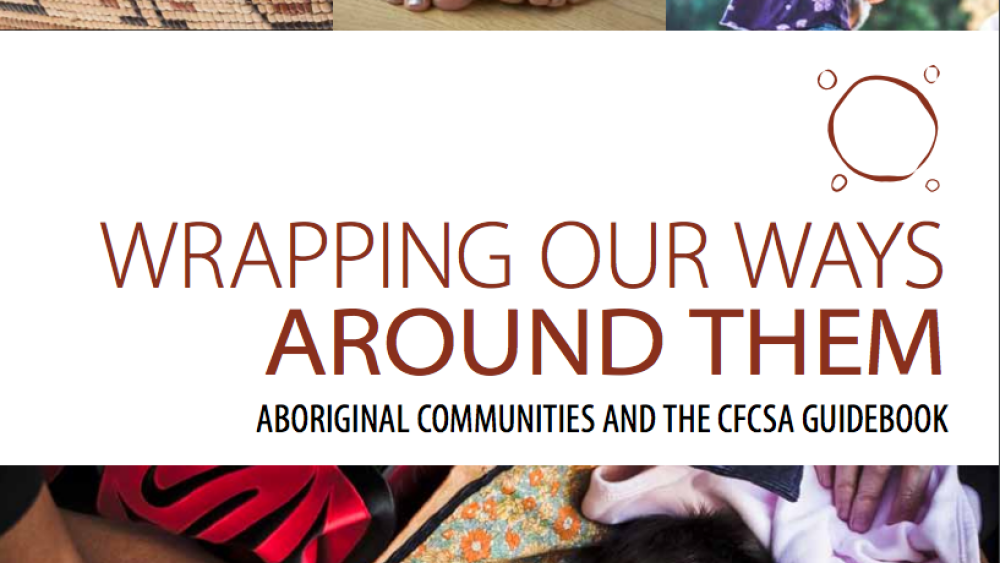
Wrapping Our Ways Around Them: Aboriginal Communities and the CFCSA Guidebook
This Guidebook is based on the belief that Aboriginal peoples need to know, and work with, the systems that impact children and families today such as the Child, Family and Community Service Act (CFCSA), Provincial Court (Child, Family and Community Service Act) Rules (Rules), Child, Family and…
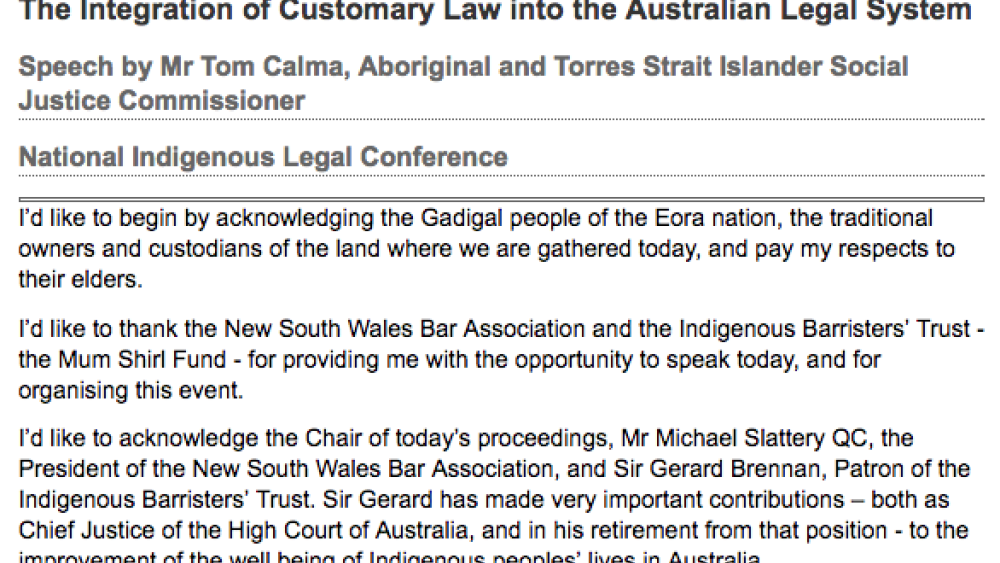
The Integration of Customary Law into the Australian Legal System
The theme of my address this morning emphasizes the important role that Indigenous people have, to take charge of our own destinies. The maintenance and integration of Aboriginal customary law is an essential part of this. It cannot be repeated often enough that a legal system must reflect the…
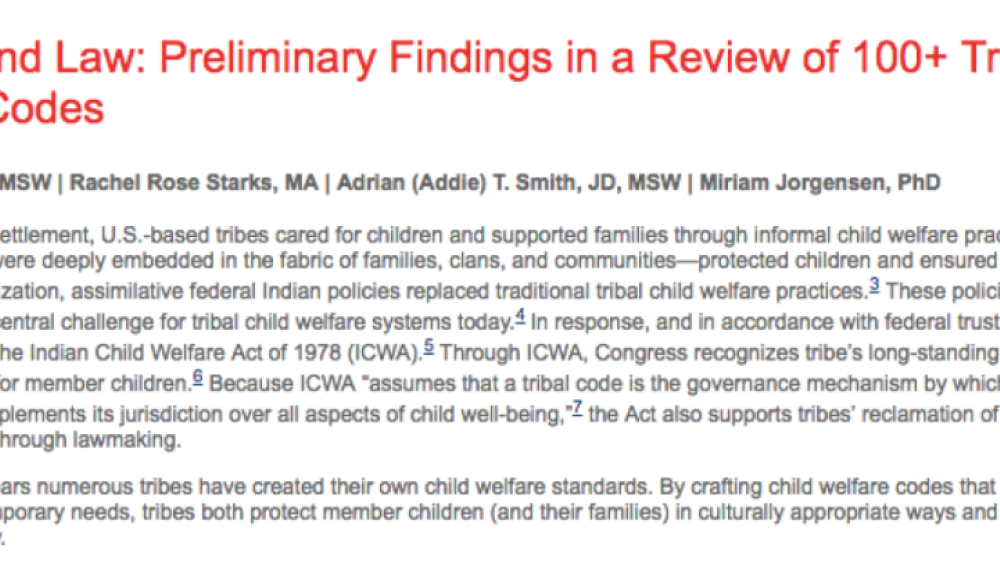
Culture and Law: Preliminary Findings in a Review of 100+ Tribal Welfare Codes
Over the last 35 years numerous tribes have created their own child welfare standards. By crafting child welfare codes that balance traditional culture and contemporary needs, tribes both protect member children (and their families) in culturally appropriate ways and reaffirm their sovereign…
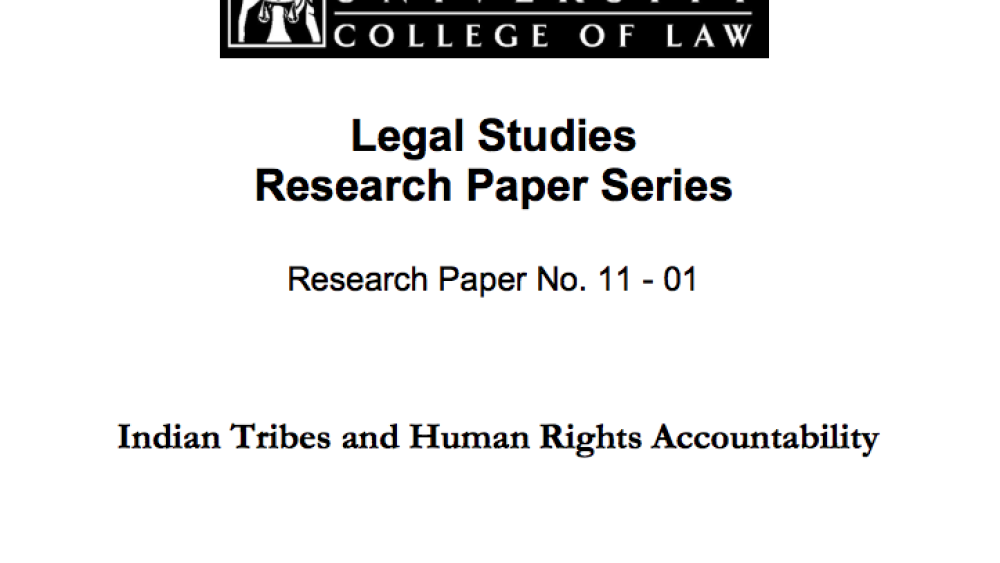
Indian Tribes and Human Rights Accountability
In Indian country, the expansion of self-governance, the growth of the gaming industry, and the increasing interdependence of Indian and non-Indian communities have intensified concern about the possible abuse of power by tribal governments. As tribes gain greater political and economic clout on…
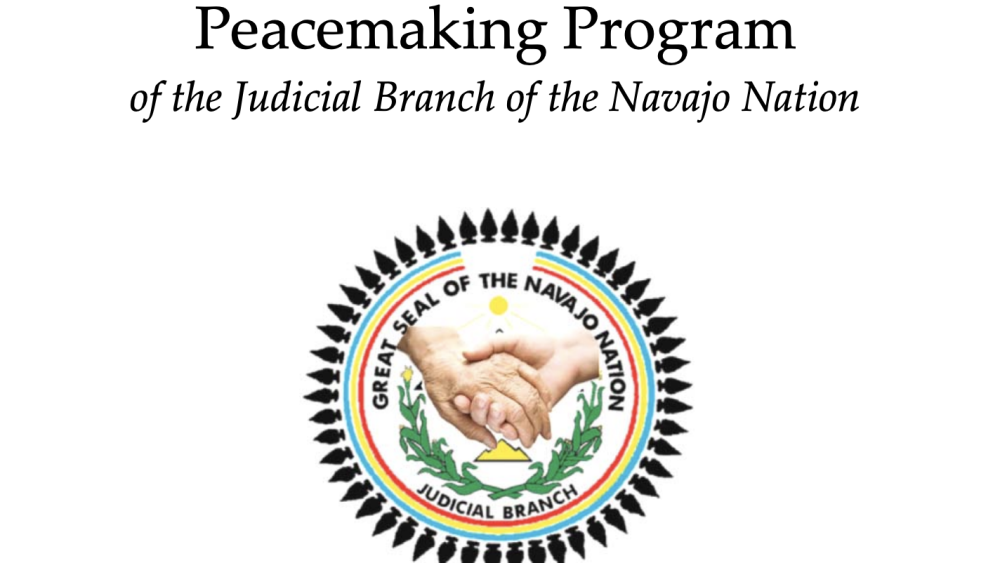
Peacemaking Program of the Judicial Branch of the Navajo Nation
The concept of peacemaking or hózh̨óji naat’aah goes back to the beginning of time and is embedded in the journey narrative. In fact, according to the journey narrative, the Holy People journeyed through four worlds. In the course of their journey, they came upon many problems, which were either…
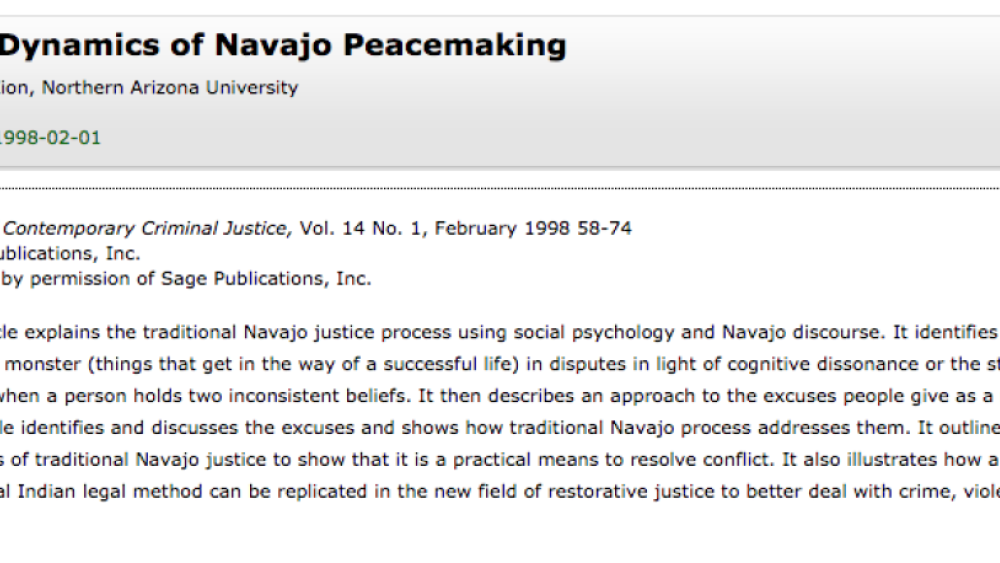
The Dynamics of Navajo Peacemaking
This article explains the traditional Navajo justice process using social psychology and Navajo discourse. It identifies the nayee or monster (things that get in the way of a successful life) in disputes in light of cognitive dissonance or the state of tension when a person holds two inconsistent…
Pagination
- First page
- …
- 5
- 6
- 7
- …
- Last page
